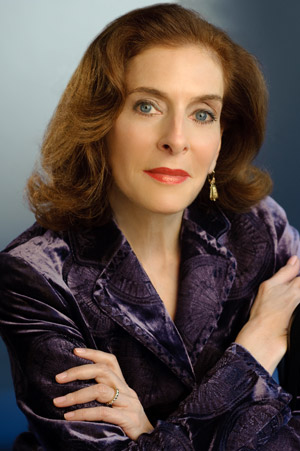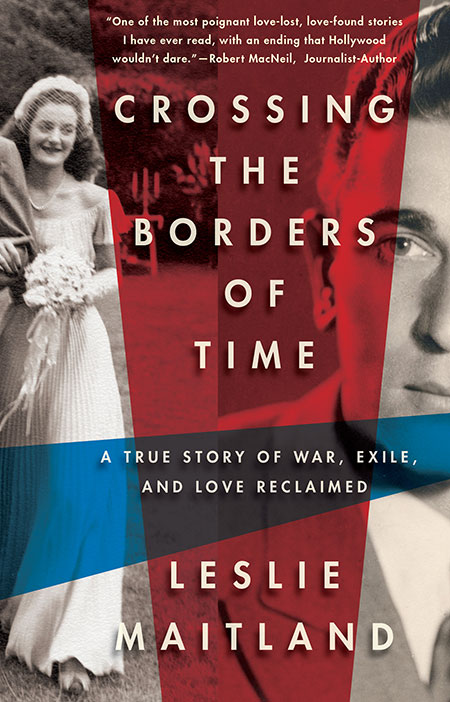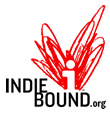Bookreporter.com first published this Mother’s Day post on April 30, 2012. View the issue here.
Recently, returning things to a box of my mother’s memorabilia that I had used in my research for the nonfiction book I wrote about her life, I came across a Mother’s Day card that I had made for her many years ago, when I was in college. In view of the depth and breadth of all my previous rummaging through the artifacts of her past, I was surprised to have overlooked this card. Now I admit to taking a little belated pride in the passable watercolor of a pot of violets that I had painted on the cover. But what stunned me was a statement in the message that I, her first child, had penned to Mom inside:
“On the day that you became a mother, I entered life to mirror your life through my eyes.”
I read the words again, and a storm of emotions overwhelmed me. Having just finished years of work writing about her life in CROSSING THE BORDERS OF TIME, I was taken aback by the sentiment expressed here by my younger self. Had I truly known so long ago that I would dedicate myself to a concentrated mission as my mother’s biographer? Even before embarking on a journalist’s career — indeed even before setting off on any sort of adult life — had I already embraced the goal of telling my mother’s story? The simple clarity of the card’s avowal surpassed my conscious understanding. Did that mean that I had done what I was always meant to do? There could be satisfaction in believing that.
At the same time, it seemed disturbing to read a declaration that implied I’d seen my very reason for existing as bound up in that loving mission of recording and transmitting my mother’s story. Perhaps, the daughter of a survivor, I’d felt it as a duty. Or had I meant it was essential, ordained, engrained in my identity? As much a part of me as I was part of her.
Mom herself, of course, has always been an enthusiastic storyteller, and her accounts of life in prewar Germany, in occupied France, in Batista’s Cuba, and in New York City of the 1950s have enthralled me always. Cruelty, war, love, and escape were themes that filled my daily life even as a child. But the residue of longing and regret that lay like dust on my mother’s romantic memories made me share her wistfulness for a period that I myself had never known. Everything that truly mattered seemed to beckon from across a border of time that barred me from experiencing personally the sort of life that gave rise to stories worth retelling for generations.
History grew very real to me. Her history. Her story. I knew every character in every tale by name; I saw their fates spin out before me; and ultimately, when I decided to write about them, I knew exactly where to go to track them down. Because I was also my father’s daughter, trained against assuming the truth of anything not verified, I would retrace my mother’s steps and, as that Mother’s Day card predicted, mirror her life through my own eyes. Still neither Mom nor I could have possibly imagined where that journey of rediscovery would lead me, when I went in search of her lost first love, and how thoroughly it would change her world.
Meanwhile, just last month, as we eagerly anticipated the publication of my book about her, Mom was precipitously hospitalized with pneumonia. For several weeks, plagued by complications, she was seriously ill, and I deeply feared an outcome that would take her from us and rob us of a moment I had counted on our sharing. I gave her the bound galley with an inscription, prayed that she would live to see the finished book, and am profoundly grateful that she is now on the road to full recovery.
In the anxious hours I spent at her bedside, however, I gained another understanding of what I’d aimed to do in documenting the dramatic story of the mother I adored. Not only would I make her real to unfamiliar readers, as to her own descendants yet to come, but I myself would know her with an extraordinary degree of intimacy and insight. The pages of my mother’s life would remain with me forever and permit me to hold on to her. On Mother’s Day and always.








Hello!
I’ve just finished your wonderful book.
How is your mom? I hope she has completely recovered.
Yours,
Lea